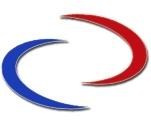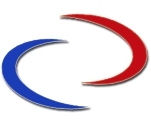Episodes

Tuesday Jul 05, 2011
Part 5 - Green Korea June 2011
Tuesday Jul 05, 2011
Tuesday Jul 05, 2011
In the two and a half years since President Lee Myung-bak announced his strategy for accelerating green growth in Korea, he has inked numerous bilateral clean energy agreements, overseen passage of a law laying the groundwork for his sweeping strategy, and accepted several international awards for his leadership in the green growth arena. However, his administration has also revised plans for a cap-and-trade system in the face of opposition from the Korean private sector, showing the difficulty in swaying business leaders to "go first" in green growth when they perceive potential competitive disadvantages. Co-hosted by Korea Economic Institute and the Center for U.S.-Korea Policy, Asia Foundation, this conference examined the successes and challenges of Korea's green growth implementation, the private sector's role in bringing about a low-carbon economy, and the regional context of Korea's green growth efforts. Panelists also addressed a possible crossover in the U.S. and ROK approaches to climate change and clean energy development, and the potential for future collaboration.

Tuesday Jul 05, 2011
Part 4 - Green Korea June 2011
Tuesday Jul 05, 2011
Tuesday Jul 05, 2011
In the two and a half years since President Lee Myung-bak announced his strategy for accelerating green growth in Korea, he has inked numerous bilateral clean energy agreements, overseen passage of a law laying the groundwork for his sweeping strategy, and accepted several international awards for his leadership in the green growth arena. However, his administration has also revised plans for a cap-and-trade system in the face of opposition from the Korean private sector, showing the difficulty in swaying business leaders to "go first" in green growth when they perceive potential competitive disadvantages. Co-hosted by Korea Economic Institute and the Center for U.S.-Korea Policy, Asia Foundation, this conference examined the successes and challenges of Korea's green growth implementation, the private sector's role in bringing about a low-carbon economy, and the regional context of Korea's green growth efforts. Panelists also addressed a possible crossover in the U.S. and ROK approaches to climate change and clean energy development, and the potential for future collaboration.

Tuesday Jul 05, 2011
Part 3 - Green Korea June 2011
Tuesday Jul 05, 2011
Tuesday Jul 05, 2011
In the two and a half years since President Lee Myung-bak announced his strategy for accelerating green growth in Korea, he has inked numerous bilateral clean energy agreements, overseen passage of a law laying the groundwork for his sweeping strategy, and accepted several international awards for his leadership in the green growth arena. However, his administration has also revised plans for a cap-and-trade system in the face of opposition from the Korean private sector, showing the difficulty in swaying business leaders to "go first" in green growth when they perceive potential competitive disadvantages. Co-hosted by Korea Economic Institute and the Center for U.S.-Korea Policy, Asia Foundation, this conference examined the successes and challenges of Korea's green growth implementation, the private sector's role in bringing about a low-carbon economy, and the regional context of Korea's green growth efforts. Panelists also addressed a possible crossover in the U.S. and ROK approaches to climate change and clean energy development, and the potential for future collaboration.

Tuesday Jul 05, 2011
Part 2 - Green Korea June 2011
Tuesday Jul 05, 2011
Tuesday Jul 05, 2011
In the two and a half years since President Lee Myung-bak announced his strategy for accelerating green growth in Korea, he has inked numerous bilateral clean energy agreements, overseen passage of a law laying the groundwork for his sweeping strategy, and accepted several international awards for his leadership in the green growth arena. However, his administration has also revised plans for a cap-and-trade system in the face of opposition from the Korean private sector, showing the difficulty in swaying business leaders to "go first" in green growth when they perceive potential competitive disadvantages. Co-hosted by Korea Economic Institute and the Center for U.S.-Korea Policy, Asia Foundation, this conference examined the successes and challenges of Korea's green growth implementation, the private sector's role in bringing about a low-carbon economy, and the regional context of Korea's green growth efforts. Panelists also addressed a possible crossover in the U.S. and ROK approaches to climate change and clean energy development, and the potential for future collaboration.

Wednesday Jun 29, 2011
Part 1 - Green Korea June 2011
Wednesday Jun 29, 2011
Wednesday Jun 29, 2011
In the two and a half years since President Lee Myung-bak announced his strategy for accelerating green growth in Korea, he has inked numerous bilateral clean energy agreements, overseen passage of a law laying the groundwork for his sweeping strategy, and accepted several international awards for his leadership in the green growth arena. However, his administration has also revised plans for a cap-and-trade system in the face of opposition from the Korean private sector, showing the difficulty in swaying business leaders to "go first" in green growth when they perceive potential competitive disadvantages. Co-hosted by Korea Economic Institute and the Center for U.S.-Korea Policy, Asia Foundation, this conference examined the successes and challenges of Korea's green growth implementation, the private sector's role in bringing about a low-carbon economy, and the regional context of Korea's green growth efforts. Panelists also addressed a possible crossover in the U.S. and ROK approaches to climate change and clean energy development, and the potential for future collaboration.

Thursday Jun 02, 2011
APS: Dr. Yeongkwan Song
Thursday Jun 02, 2011
Thursday Jun 02, 2011
The National Assembly in South Korea recently ratified a free trade agreement with the European Union, completing a process that started after South Korea and the United States came to an initial agreement on the KORUS FTA. Now the KORUS FTA looks to be making its way through the U.S. Congress with hopes of passage by the end of the summer, leaving tie for the National Assembly to vote on it before the presidential campaign season begins in South Korea. These two FTAs have enormous potential to transform South Korea's economy and enhance the economic presence of the EU and the United States in Korea and Asia. But these FTAs also presented difficult negotiations, illustrating how the respective partners approached tarrifs, non-tariff barriers, and the economic effects on important industries like automobiles and agriculture. The Korea-EU FTA and the KORUS FTA make interesting comparisons on how Korea dealt with two bigger economies and the politically sensitive issues that affected ratification of the agreements.

Thursday May 05, 2011
On the Road to Ratification: Could the KORUS FTA Take a Wrong Turn?
Thursday May 05, 2011
Thursday May 05, 2011
On May 5, KEI hosted a discussion of the potential wrong turns that could occur as the United States and Korea work towards ratifying the KORUS FTA. After the United States and Korea reached an agreement on autos in December, it appeared as though the KORUS FTA would quickly move towards passage. However, since reaching the December agreement the KORUS FTA has largely remained in a holding pattern in the United States. The discussion focused on recent developments in the United States and Korea that should help move the KORUS FTA forward, but also on the potential obstacles that remain.

Thursday Apr 28, 2011
APS: Economic Reforms in North Korea and Cuba
Thursday Apr 28, 2011
Thursday Apr 28, 2011
North Korea and Cuba benefited economically from Soviet Union support, but after the collapse of the Soviet bloc, both countries had to reexamine their policies. Since 1990, these two countries have tried various economic reforms under their centrally planned economies. Which country has been more effective in their efforts? As the two nations are both undergoing leadership transitions, how likely are further economic reforms?

Thursday Apr 14, 2011
Green Korea Policy Seminar - Green Finance
Thursday Apr 14, 2011
Thursday Apr 14, 2011
This event addresses green finance in Korea and the broader global context. The program explains the importance of a green economy spurred by effective green finance, and will explore the requisite financial architecture. The seminar tackles the current status and future direction of green finance in Korea, focusing in particular on bank loans, credit guarantees, and capital markets, as well as securitization as an effective green finance mechanism. The program presents the current status of efforts aimed at "greening" the transportation sector in Korea, and the necessary financing. The program will also address the current context of green finance in the United States, and International Finance Corporation (IFC) projects in sustainable energy market development, involving both renewable energy and energy efficiency.

Tuesday Apr 12, 2011
Preparing for Change in North Korea: Shifting out of Neutral
Tuesday Apr 12, 2011
Tuesday Apr 12, 2011
This study was undertaken to assess possible futures for the North Korean regime and the Korean peninsula that could affect U.S. and regional interests, and to consider which U.S. and regional strategies and policy actions could both prepare for possible outcomes and shape those outcomes to better serve U.S. interests. -Excerpt of paper introduction

